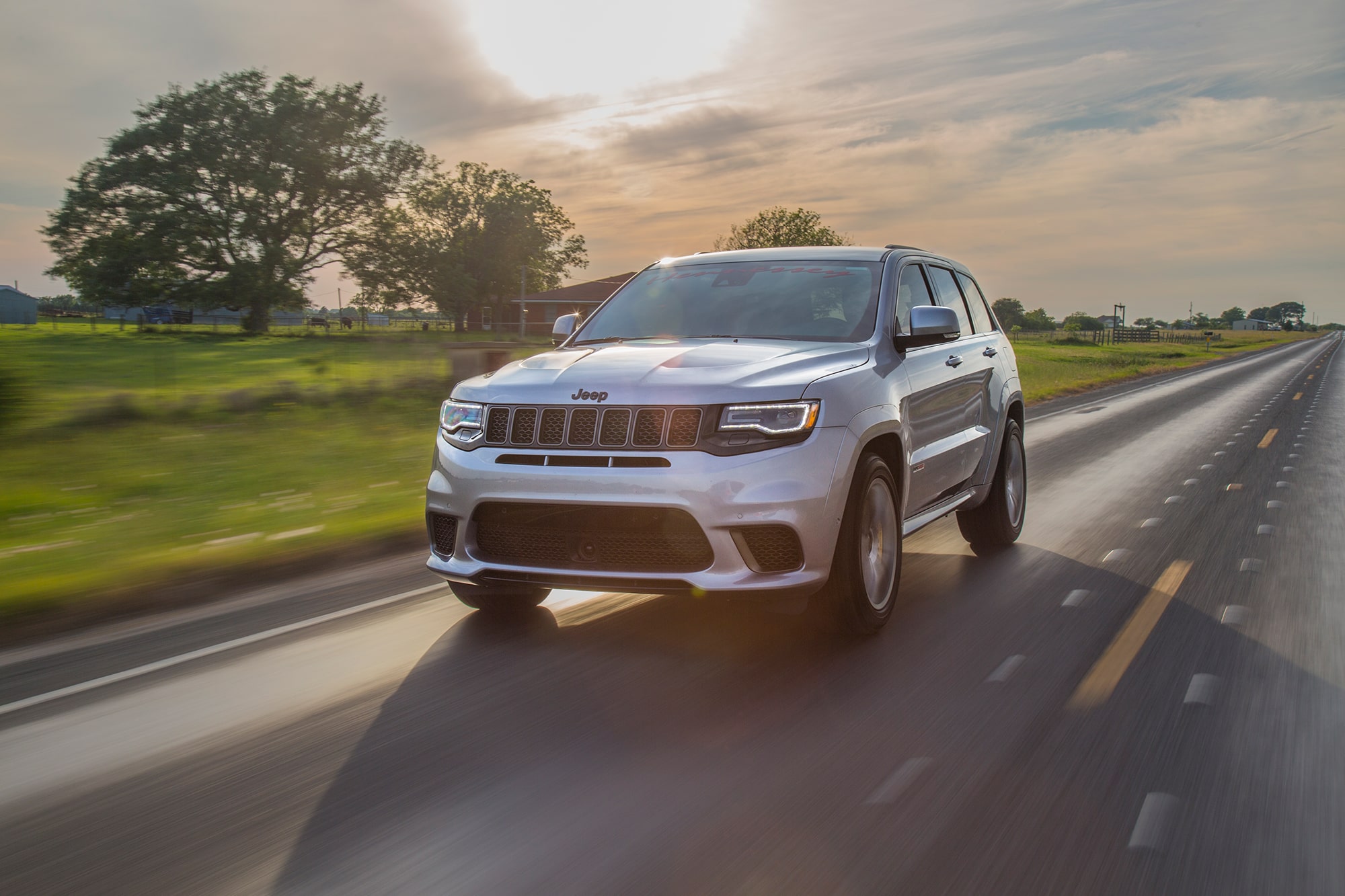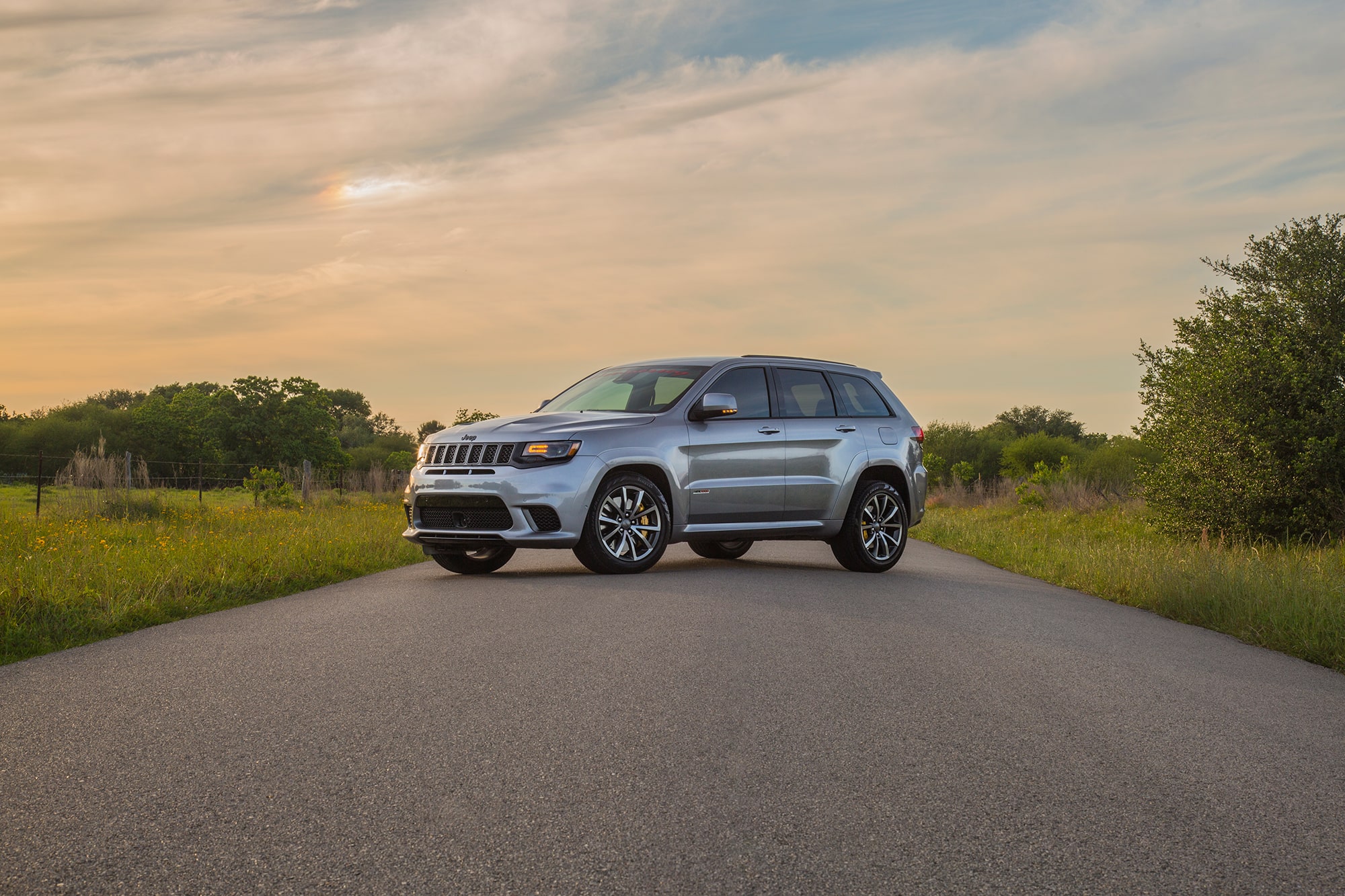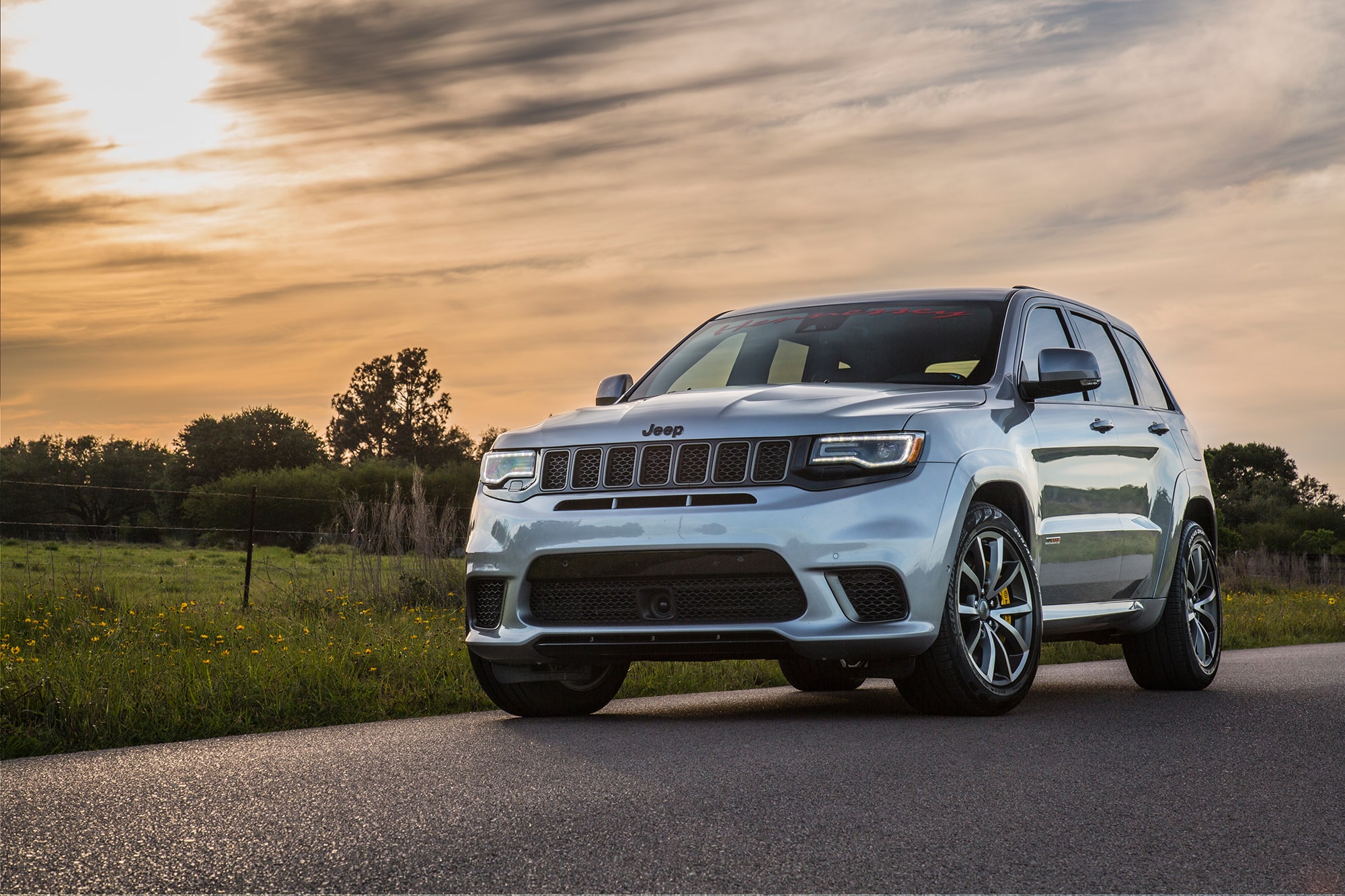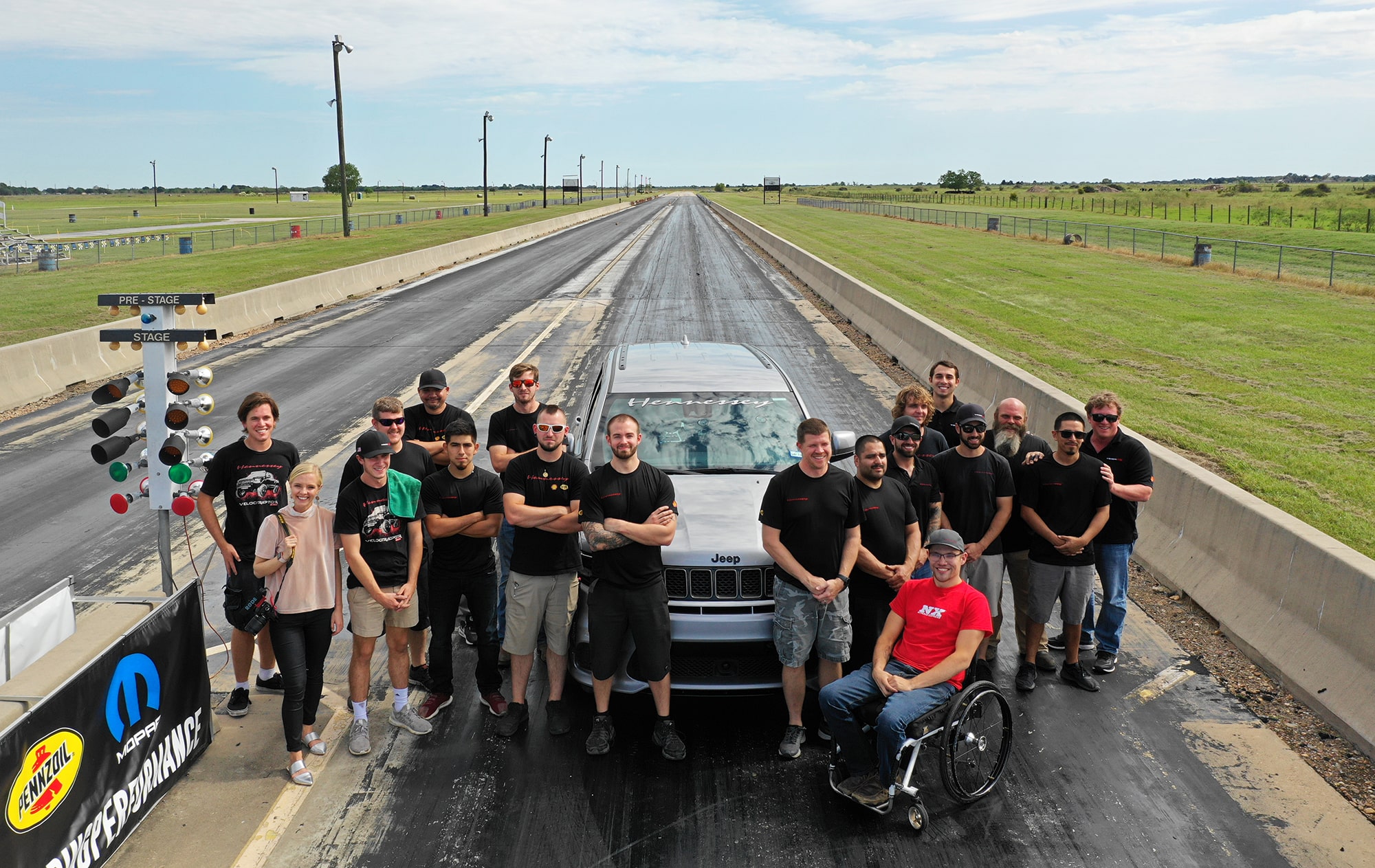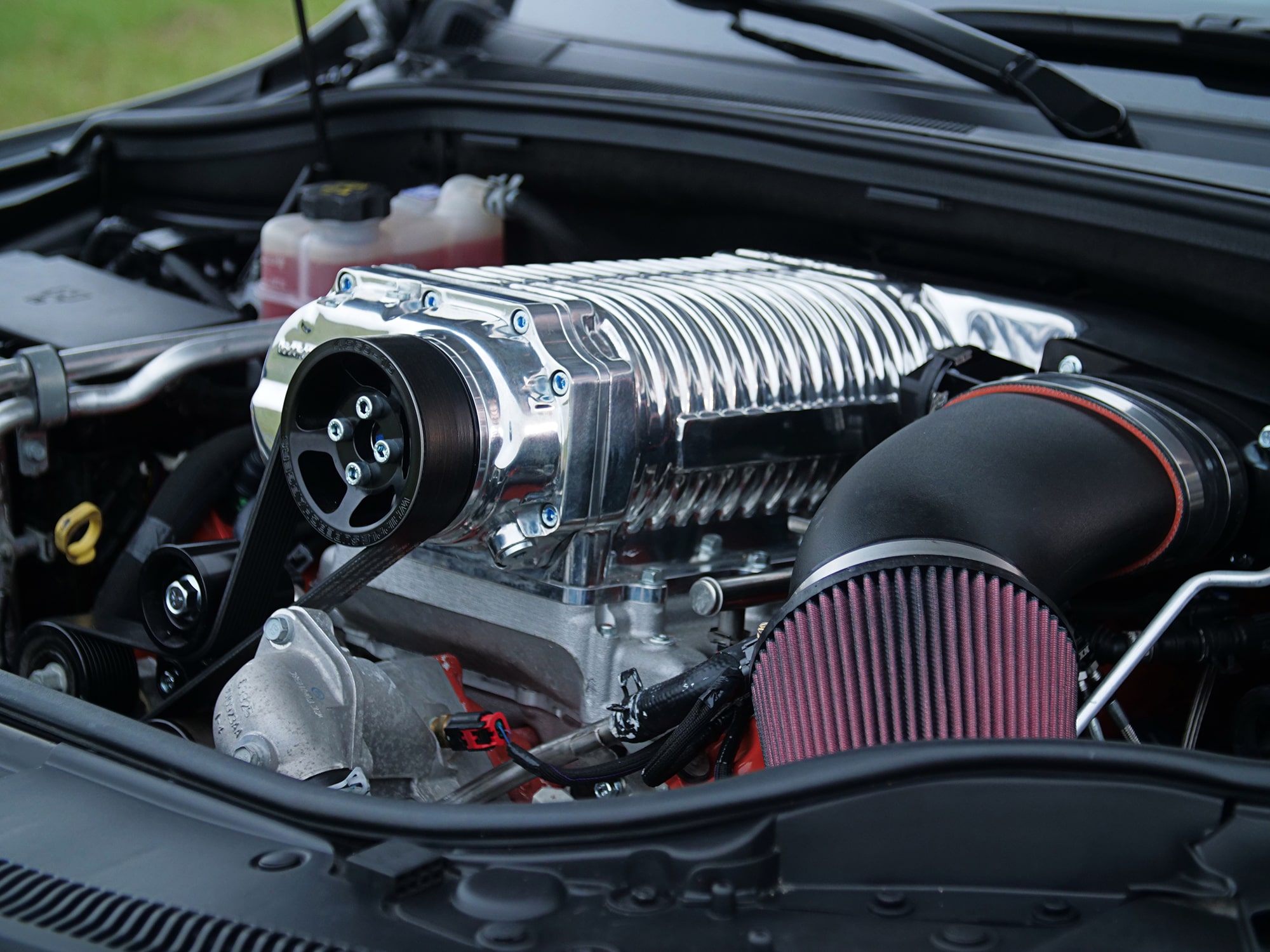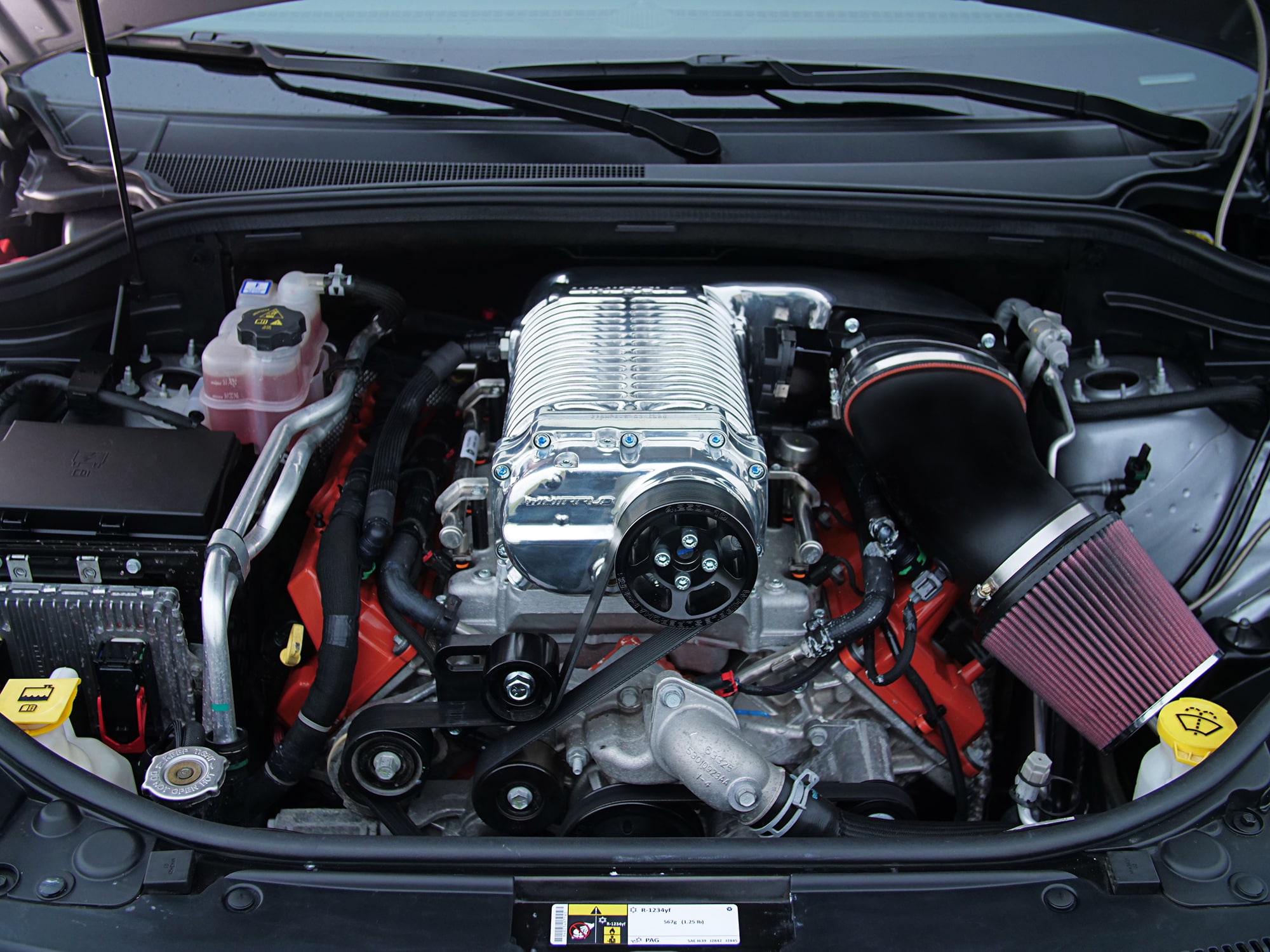With 707 horsepower courtesy of a 6.2-liter supercharged Hemi V8, the Jeep Grand Cherokee Trackhawk is pretty potent right out of the box. But Texas-based Hennessey Performance Engineering never settles for stock, so it turned the Trackhawk into a monster that devours quarter miles.
The Hennessey HPE1200 Trackhawk is the latest in a long line of hellacious tuner cars. It just ran the quarter mile in 9.66 seconds at 145 mph, and did zero t0 60 mph in 2.3 seconds, according to Hennessey. That’s a massive improvement over Jeep’s claim of 0 to 60 mph in 3.5 seconds and an 11.6-second quarter mile for the stock Trackhawk. Hennessey’s version is also quicker from 0 to 60 mph than a Ferrari 812 Superfast or Lamborghini Aventador SVJ. Hennessey also claims the HPE1200 will do over 200 mph, compared to 180 mph for the stock Trackhawk.
“Some may say that it’s pointless to build an SUV quicker than nearly every supercar and hypercar on the market today. I say that is exactly the point,” Hennessey founder and CEO John Hennessey said in a statement. “And because we can.”
To make something this big go that quick, you need a lot of power. So Hennessey modified the Jeep’s 6.2-liter V8 (which is shared with Dodge’s Hellcat Challenger and Charger) and added a bigger supercharger. The result is 1,200 hp and 1,100 pound-feet of torque at the crankshaft, when running 109-octane unleaded gasoline. Inevitable driveline losses reduce that to 1,003 hp and 892 lb-ft at the wheels, according to Hennessey.
That power does not come cheap. The Hennessey HPE1200 is priced at $179,000, including the cost of a Jeep Grand Cherokee Trackhawk donor. The base price of a Trackhawk is $86,200, so you’ll still be spending just over $90,000 on upgrades. Hennessey also offers upgrades for more traditional American muscle cars, but the Jeep’s all-wheel drive likely makes it easier to tap into the extra performance in the real world. Also, your kids and dog can come along for the ride.
The HPE1200 isn’t even the craziest Hennessey vehicle. The company also makes six-wheeled versions of the Ford F-150 Raptor and Chevrolet Silverado, and its Exorcist Camaro tops out at 217 mph. But the tuner’s creates creation may be the Venom F5, a bona fide supercar with a claimed 301 mph top speed. If the F5 can achieve that, it will be the fastest production car in the world.
